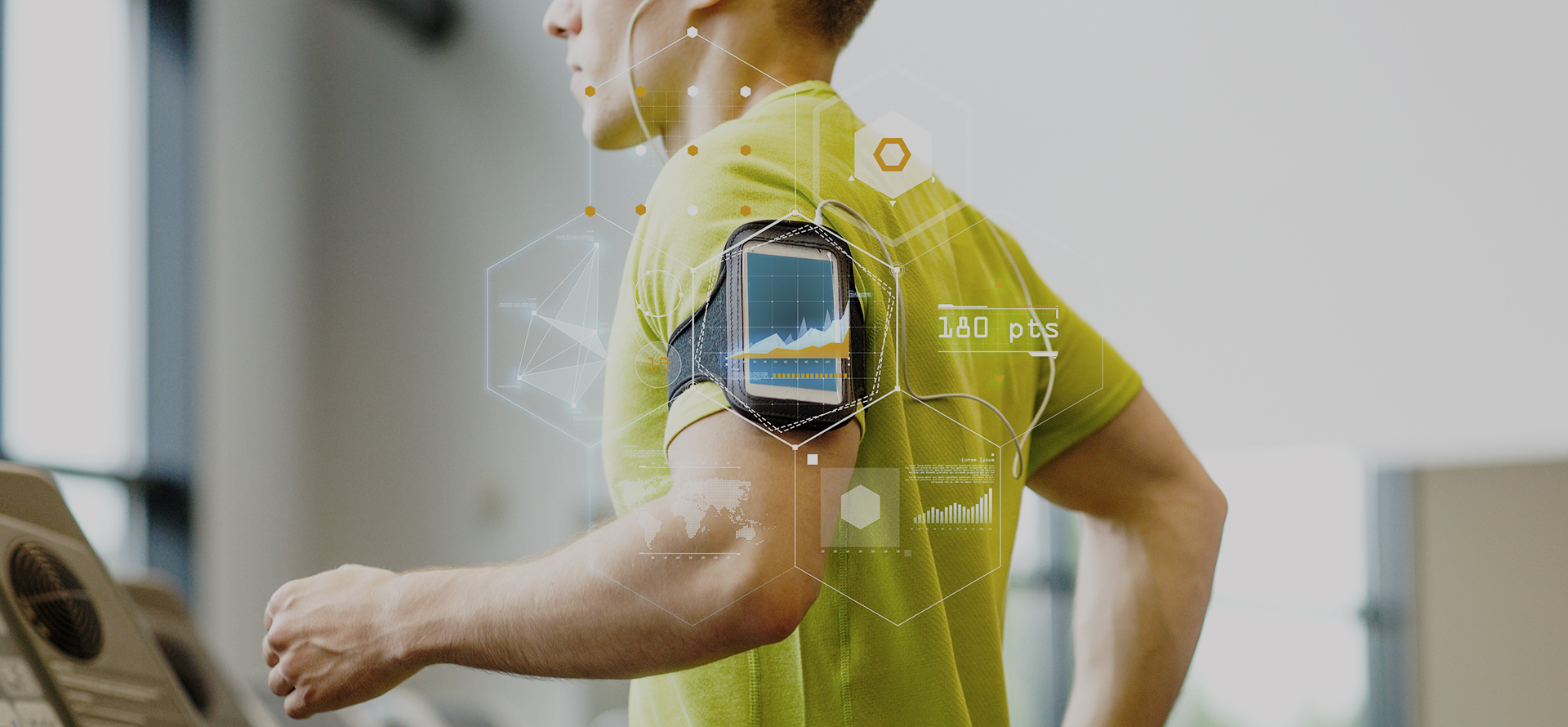01
Using smartphones for smarter healthcare
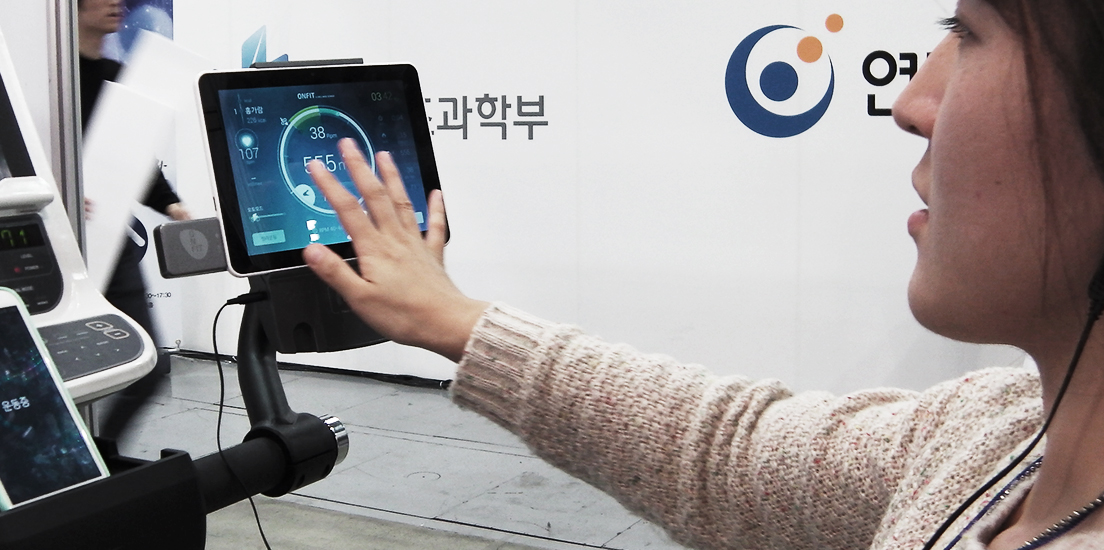
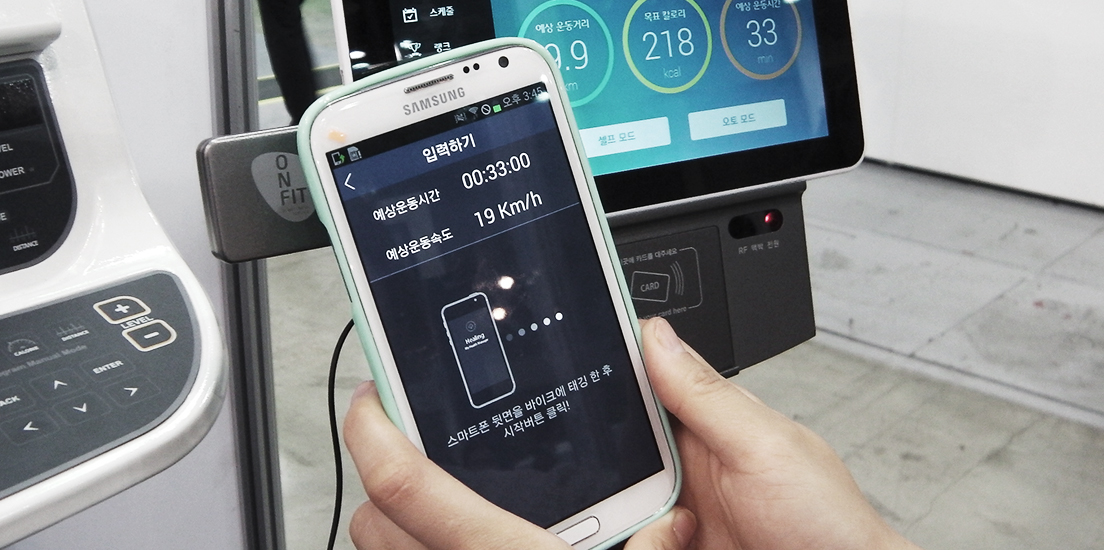
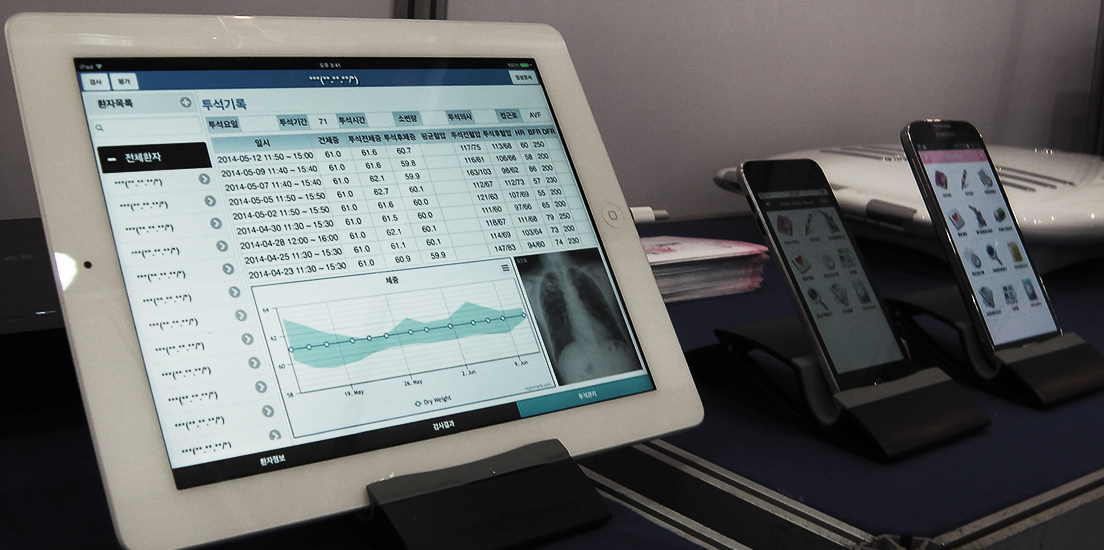

Cold symptoms are easy to overlook, but may escalate into serious illnesses. As such, those facing a higher risk of high blood pressure and diabetes must take care of their health systematically based on individual health records. ETRI’s researchers are developing a technology that facilitates healthcare and other medical services using smartphones.
The proposed ICT healing platform collects individual health data from various servers and stores them in a database. The stored information constitutes a killer service that makes data readily available to other health services.
The platform stores health-related data, such as medical history, medications, blood pressure, and heart rate, in smartphones or individual storage spaces with the consent of users. When health problems arise, users can give permission to their doctors or healthcare professionals to access individual health records. The accumulated data helps to significantly improve the quality of healthcare services.
Through the application of open technology, personalized healthcare services will be developed based on measurements on amount of exercise, heart rate, and sleeping patterns obtained from wearable health monitoring devices.
“Your blood pressure is higher than on normal days; avoid hiking and strenuous exercise.”
“Keep your body warm for the changing season.”
“You have a slight cold ; drink warm water more often.”
Users will receive messages like the above on their smartphones according to their current health.
ETRI found that BT-related research has been difficult to commercialize due to privacy concerns. The team resolved this problem by allowing users to manage their own health data and respond to viewing requests.
With the processing of hospital records, exercise records, and wearable device measurements into big data, ETRI’s ICT healing platform is expected to produce more meaningful results.
02
Easier development of healthcare IoT
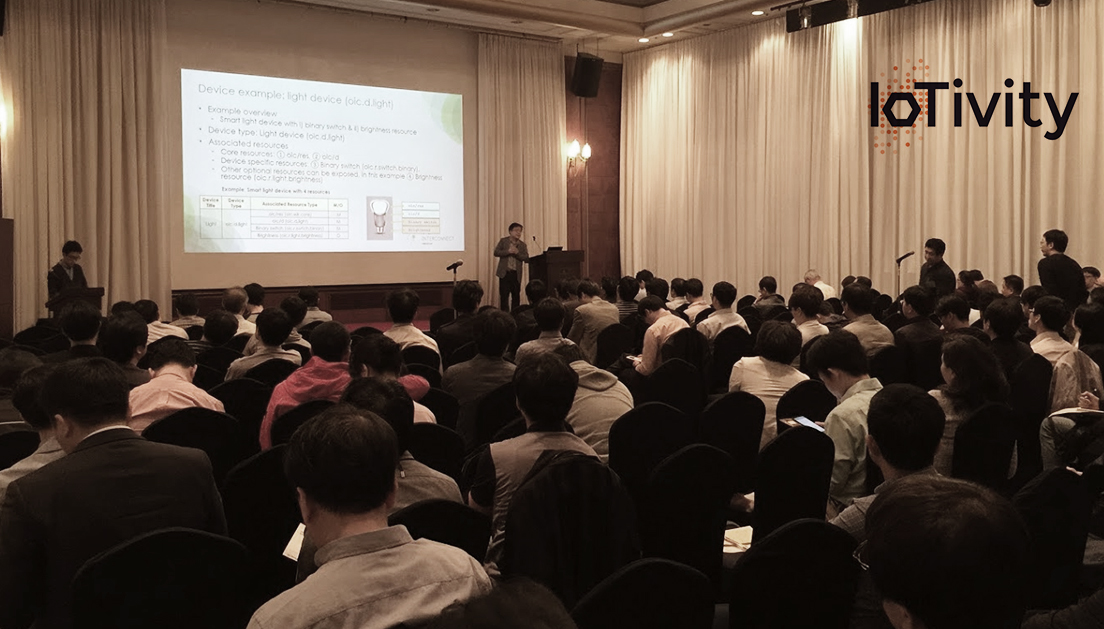
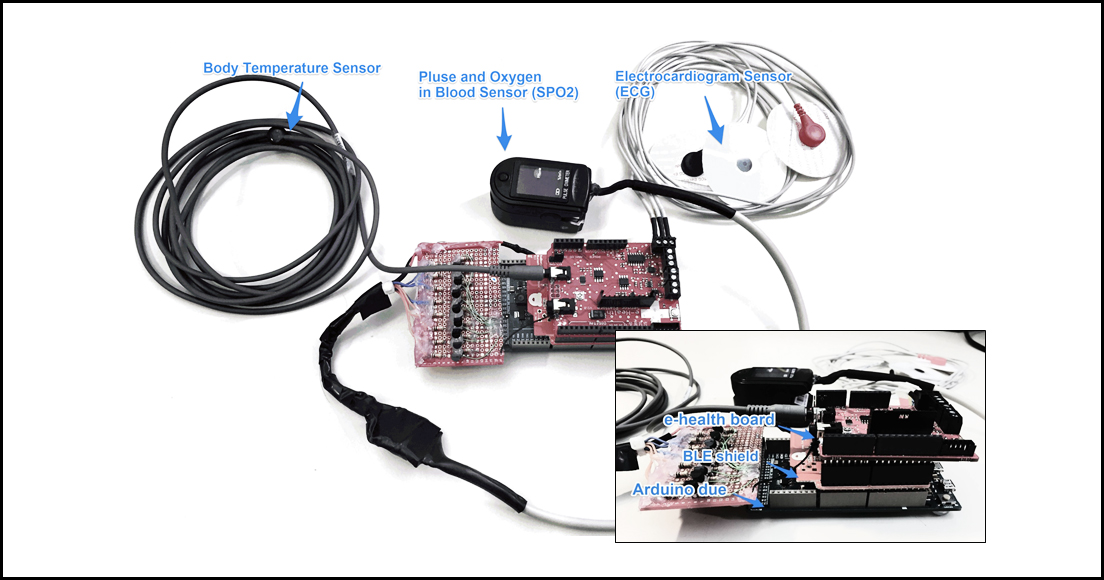
ETRI has begun to develop international standards for healthcare IoT, which ranges from wearable devices to fitness and IoT. The researchers are drafting two healthcare standards, namely, “Specifications for Healthcare Resources” and “Healthcare Device Specifications,” for IoT applications of the Open Interconnect Consortium(OIC).
The institute has developed a prototype that adheres to healthcare standards being developed under IoTivity, an open source project under the Linux Foundation. Once standardization is complete, users can download open source codes for various wearable devices, fitness devices, and IoT devices. This will facilitate the development of applications that fulfill international standards.
Currently, IoT can be categorized into various areas such as home appliances, healthcare, and industrial internet. Sharing across different areas has been difficult due to the lack of international standards spanning home appliances and healthcare devices.
ETRI’s international standards will allow various healthcare devices, fitness devices, and wearable devices to share data and connect across industries. The institute plans to further promote IoT by cooperating with local business in the development of key technological standards and open data policies.
In January last year, ETRI attended CES 2017 in Las Vegas to introduce its healthcare technologies. It showcases seven technologies in various fields, including broadcasting and media, hyper-connected communications, 5G giga communications, and international standards. Booth were set up for its technological achievements in the category of healthcare and connected technology.
Soonseok Lee, the executive director of ETRI’s Communication Strategy Department, said, “We plan to participate in more international conferences to promote our latest achievements in ICT. We will implement global marketing strategies to raise awareness of ETRI’s outstanding technology and play a leading role in overseas technology commercialization.”
03
Organization of conference to prepare for IDX age
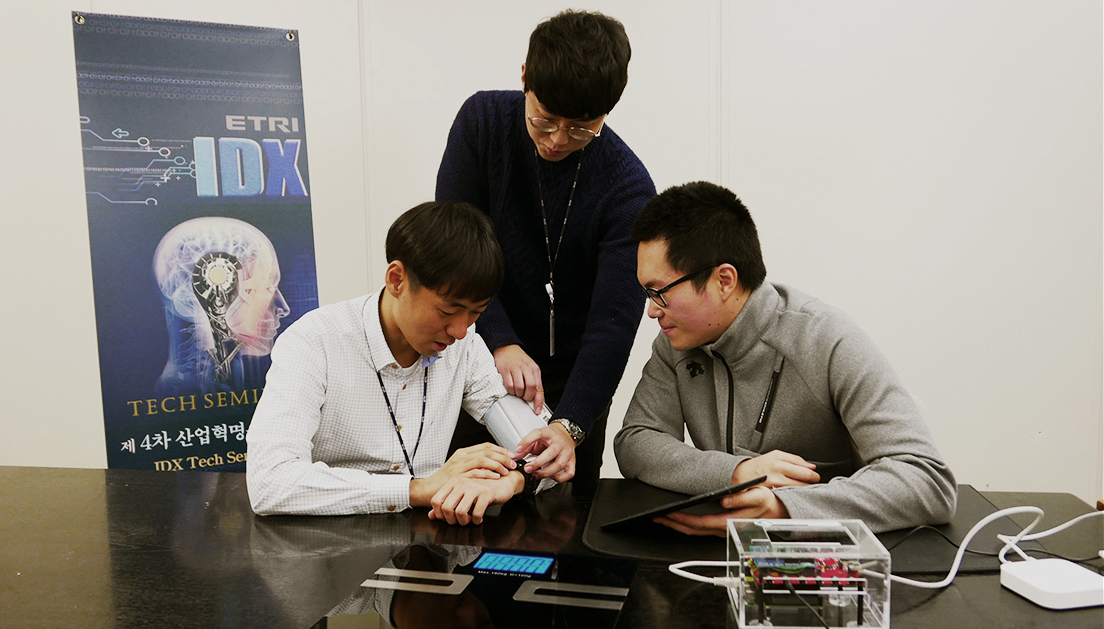
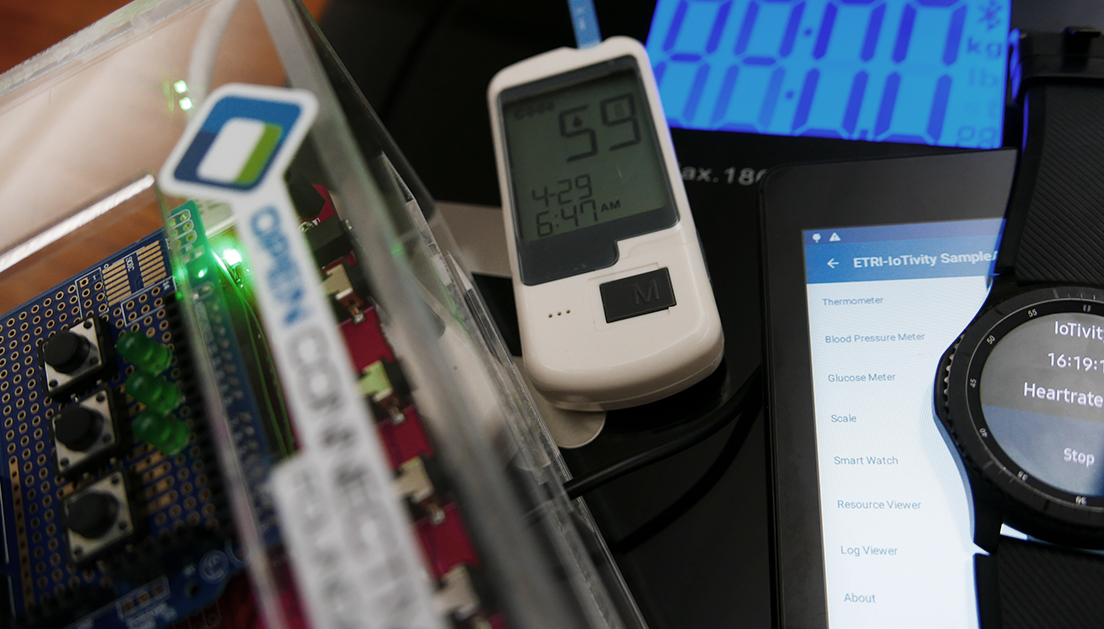
ETRI and the Ministry of Food and Drug Safety organized the Smart Healthcare Convergence Conference 2017 to share ICT-based products and technologies that contribute to a new paradigm of healthcare, and to explore directions of enhancing national competitiveness in related fields.
The conference covered the latest trends in the convergence of ICT and medical healthcare, such as medical AI, medical 3D printing, medical IoT, and wellness/wearable applications.
In the field of medical 3D printing, there was an introduction of bioceramic personalized medical devices and 3D printing applications in neurosurgery. The participants learned about various case studies and technological issues involved in the application of 3D printing to clinical practice.
Jonghong Jeon, a senior researcher at ETRI, spoke on the issues concerning medical IoT and the adoption of OCT specification standards. He also introduced case studies in medical AI and smart systems used in the field of wellness/wearable devices.
The Smart Healthcare Convergence Conference 2017 served as a valuable opportunity for ETRI and the Ministry of Food and Drug Safety to acquire extensive data on medical AI, applications of deep learning models, and case studies on development of AI applications by hospitals and start-ups.
04
Can devices read human emotions?
In addition to the above, ETRI’s latest technologies have featured wearable devices. Its wearable mental health technology uses wearable devices, integrated with a physical health monitoring function, to check users’ emotional states.
When the wearable device is worn on the wrist, the technology analyzes electrocardiograms and brain waves to monitor both psychological and physical health.
The technology will be useful for the integrated health management of military personnel in communal living settings, workers in harmful environments, and caregivers of dementia patients.
ETRI plans to exert more efforts in technological research to prepare for the age of IDX, which will see greater activity in the integration of ICT and industrial convergence.








